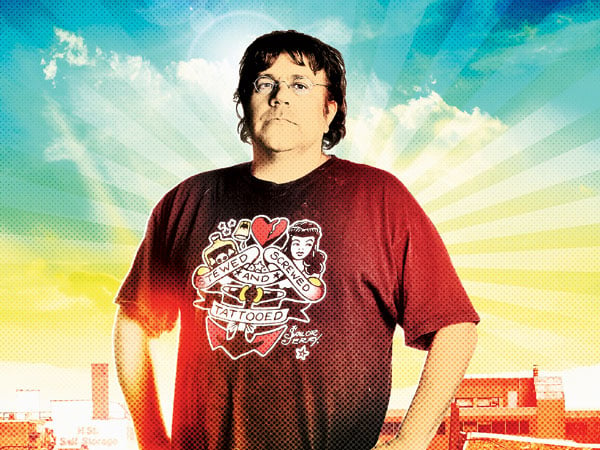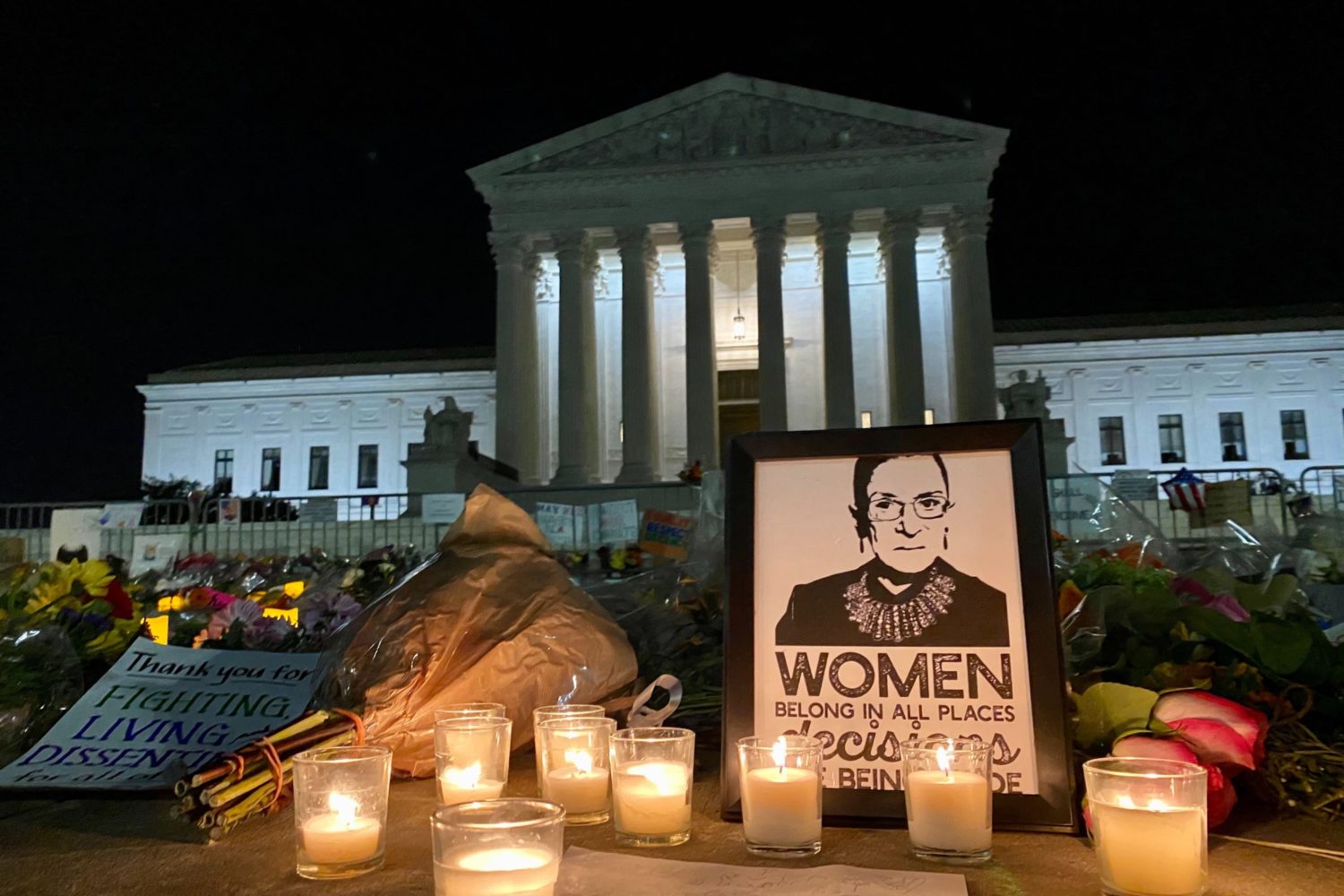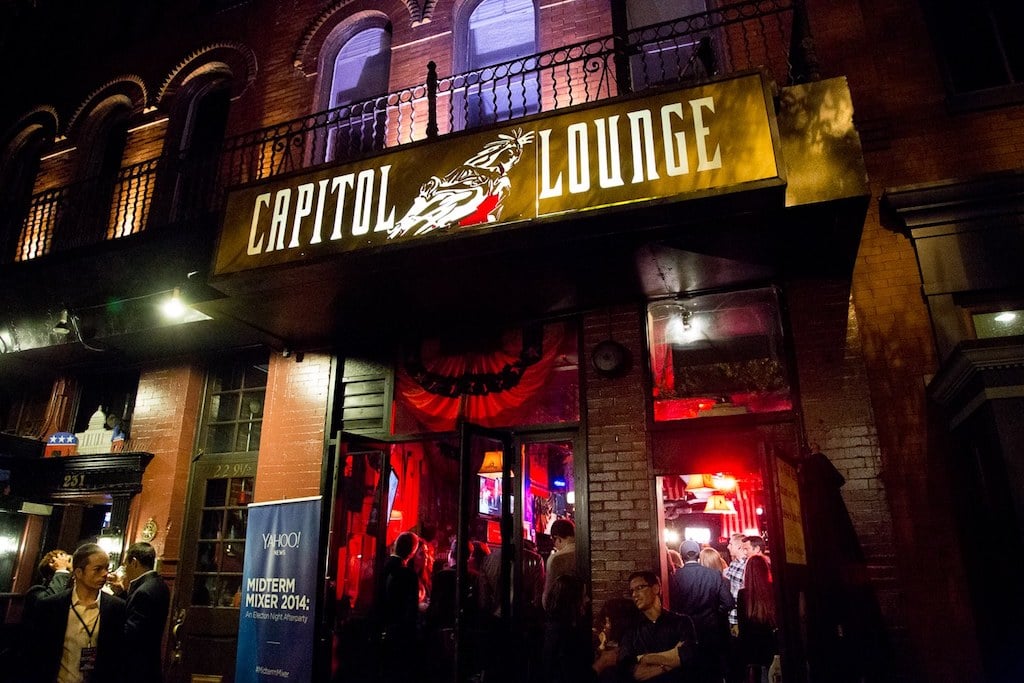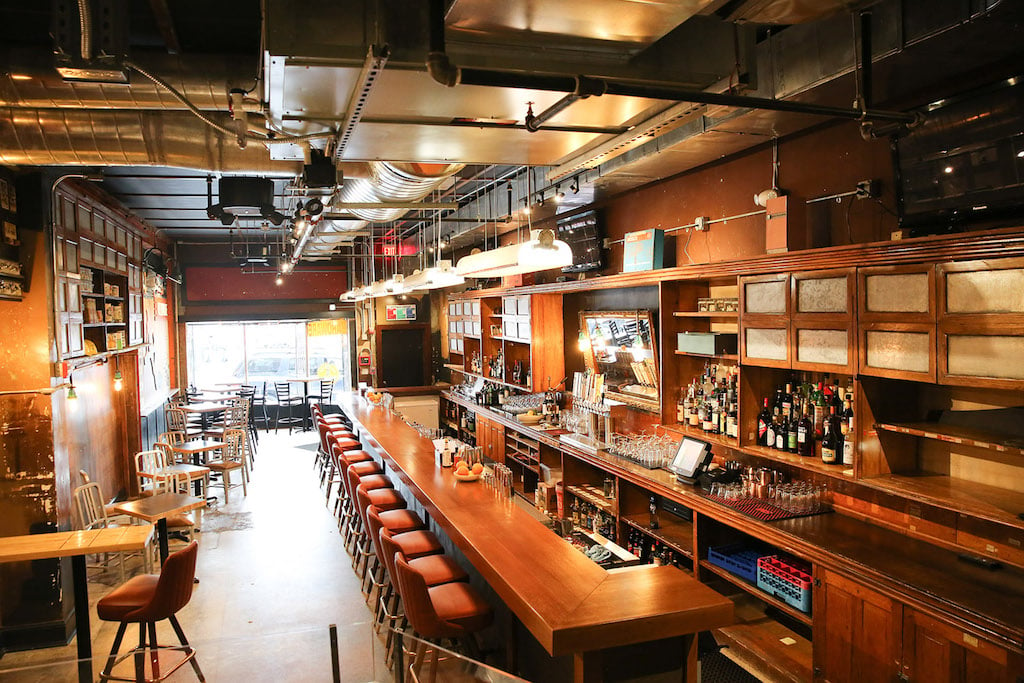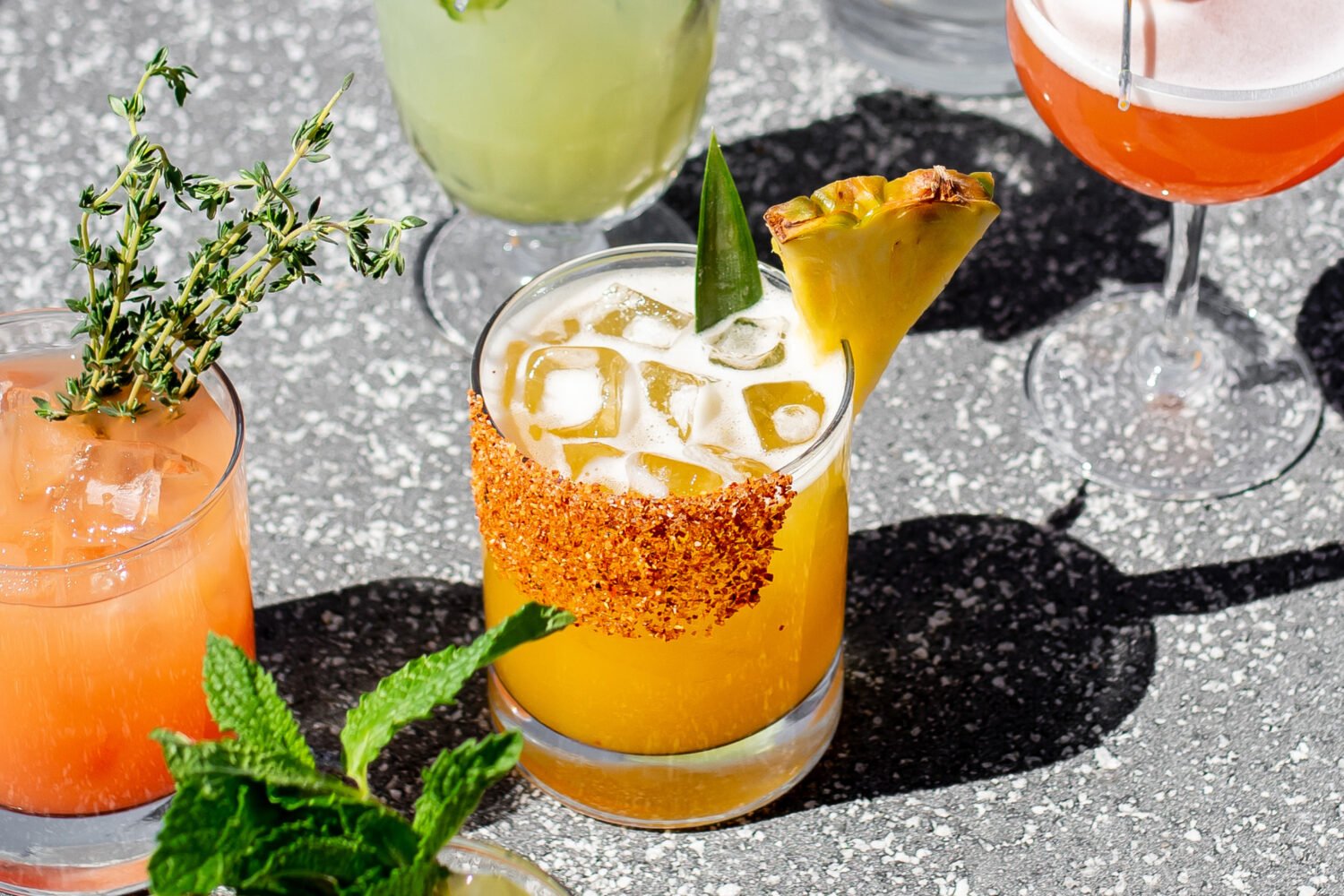Entrepreneur Joe Englert died yesterday at age 59, but his influence will be around for a long time.
To start, he was incredibly prolific
Here’s a list of places Englert owned, co-owned, or was at some point involved with: Club Random; 15 Minutes; Crow Bar; the Insect Club; the Andalusian Dog; the Rock; State of the Union; Strangeways; the Big Hunt; Zig Zag; Planet Fred/Lucky Bar; Capitol Lounge; Politiki/the Pour House; DC9; the 51st State; the Argonaut; Sticky Rice; H Street Country Club; Trusty’s Full Service; Granville Moore’s; Palace of Wonders/the Red and the Black/Vendetta; Veritas; Rock n’ Roll Hotel; Temperance Hall; Reliable Tavern; Enology; Truxton Inn; McClellan’s Retreat.
Did we miss any? Probably.
Although it’s been reported many times over the years that Englert was a partner in H Street bar the Pug, owner Tony Tomelden says that’s not the case—but neither ever bothered to correct the record.
He made the DC bar scene a lot more fun
Englert was the antidote to slick, official Washington… and staid Washington… and early-to-bed Washington. Sure, there were plenty of low-key taverns back in the ‘80s and ‘90s. But Englert thrived on cooking up concepts that could conservatively be described as off-the-wall. They were ideas that were kind of like him.
“He was just a collector of characters and strange, funny stories. He could be amused at the slightest thing. This is a guy who would have fun in an insurance seminar,” says DC9 chef Amber Bursik, who’s known Englert since she was 18.
There was the Andalusian Dog, a pioneering U Street bar inspired by the surrealist Luis Buñuel/Salvador Dali film (you know, the one with the eye-slitting), where, as the Washington Post described, “hands jut from the walls, doors lead you nowhere, a ceiling mural swirls above you depicting souls being sucked into the vortex of hell.”
There was the H Street Country Club, with its sprawling mini-golf course and papier-mâché recreation of Ben’s Chili Bowl. And of course, there was the Insect Club, which—in 1993!—introduced Washington to cricket burgers and mealworms Rockefeller (apparently it was a hit—the chef went through 50,000 bugs a day).
DC9 co-owner Bill Spieler says Englert loved to go to yard sales to buy random kitsch. “It might take two to five years after collecting enough, and then he’d be like, ‘OK, time to make a club with all this stuff.’ I maybe went once to one of his warehouses, and it would be full of stuff.”
He transformed U Street
During the Marion Barry-era early ’90s, there weren’t many draws to U Street besides Ben’s Chili Bowl, the revitalized Lincoln Theatre, and the budding Metro station. Englert changed that with attention-getting bars like State of the Union (Soviet-themed, with Marx burgers and DJs); Zig Zag Cafe (a staple in the broody coffeehouse scene—its slogan was “coffee for smart people”); and the aforementioned Andalusian Dog, which served tapas even way back then. The New U—where you went if you were too cool for Georgetown and Dupont Circle—was becoming a thing.
…and H Street
In 2004, Englert set his sights on the commercially neglected H Street, Northeast corridor. He bought eight (!) buildings. He hired someone to keep the streets clean and enlisted a Prius driver to shuttle patrons from Union Station. He reportedly was the one who came up with the name “Atlas District.”
Englert renovated the buildings and turned them into a dizzying range of places. Some had more staying power than others.
Perhaps the biggest draw to pre-Whole Foods H Street for a long time was his Rock n’ Roll Hotel, the beloved, dingy music venue that closed in March. His mussels-themed restaurant Granville Moore’s pivoted to pasta at the start of the pandemic (it’s now closed temporarily). H Street Country Club is still around (though also shuttered temporarily), but the low-key Argonaut suddenly closed up in 2016.
He was willing to try anything, but also to change course
Take H Street’s Palace of Wonders, a sideshow/burlesque/vaudeville-themed bar with a museum’s worth of knickknacks crammed onto the shelves (also: jars of creatures preserved in formaldehyde). After four years, Englert merged the spot with nearby music joint the Red and the Black. It became Red Palace, which brought live music into the mix before closing in 2013.
(Fun fact: When the bar was initially built out, the staff had adopted an orange tabby cat named Al. Englert somehow got the city to give Al a performer’s license, so the cat could live in the bar and skirt the health department rules against having pets in businesses. “I don’t know how he did it, but he did,” Bursik says.)
Englert then transformed the space to Vendetta, an Italian restaurant. He was master of the pivot, a savvy business guy, but also perpetually seeking something new and different to pour himself into.
“Joe could not sit still and he could not be bored,” says Bursik. “He had a million ideas, and so I think he just actually needed to see all of his ideas actualized, whether it’s opening up places or buying real estate, having cool and funky vacation homes, writing a book, he loved sports…. He just always had to keep going.”
But he also created enduring neighborhood gathering places
Capitol Hill’s Capitol Lounge, Dupont Circle’s the Big Hunt, Truxton Circle’s Truxton Inn, and Petworth’s Reliable Tavern remain many a loyal customer’s “local.”
“You went to those places because you knew you were going to run into people you knew, because you knew the bartender, because it had a very Cheers-like atmosphere,” says longtime friend Matt Weiss, who co-owned Politiki, Truxton Inn, and McClellan’s Retreat with Englert. “You didn’t go, ‘Oh that’s the best food’ or ‘that’s the coolest thing I’ve ever seen.’ It’s just like, ‘This is a fun, funky place where I can get down with the crowd.’ And I think that was really his genius.”
He bolstered the local music scene
Whether it was with house music at the Soviet-themed State of the Union, punk bands at Rock n’ Roll Hotel, or under-the-radar acts at DC9, he always had a hand in the indie music scene.
“He would constantly be like, ‘Did you hear this band? Have you heard of this band?’ ” DC9’s Spieler says, who used to go to parties that Englert would DJ in the early ’90s. “He was pretty passionate. He would go to 9:30 Club a lot. He would come into DC9, have dinner, and then watch the show afterwards. I think he instilled that love of live music into his two sons.”
He built up a generation of DC bar owners
In the same way that dozens of prominent local chefs trace their résumés back to the same handful of DC dining pioneers (Michel Richard, Bob Kinkead), a large swath of the bar and nightlife scene worked for or with Englert at some point.
“A lot of branches have grown from under him and that I think will continue for decades, if not more, to come,” says Weiss. Englert would often partner up with people who worked for him or came to him with an idea. He’d help with the vision and get the place up and running, then give his partners free reign, as was the case with H Street Country Club and DC9.
“He always had a guy like me who worked for him and then he would bring them up,” says the Pug owner Tony Tomelden, who managed, bartended, and DJ’d at various Englert bars over a dozen years (he also helped open Capitol Lounge in 1996; at one point, Englert made Tomelden fire an employee he started dating—now she’s his wife.). “I don’t know if mentor is the right word… He pushed me along.”
“The Lounge was the kind of place that’s disappearing now,” Tomelden says. The neighborhood bar that I tried to make the Pug, I learned that at the Lounge. Aside from my wife, a lot of my close circle of friends are people that I met through working for Joe.”
He helped shape DC’s bar and nightlife regulations
Throughout the ’90s and into the 2000s, neighborhood groups fought against bars having dance floors or DJs. Englert pushed back and testified to regulators and DC councilmembers.
“Opponents of nightlife wanted there to be hard, bright lines between what establishments could do: A restaurant is a place where people should go and sit and eat. A bar is a place where people go and stand and drink. And a nightclub is a place where people go and dance. That was a very old-fashioned way of looking at it,” says Mark Lee, a former head of the DC Nightlife Hospitality Association. “Joe could just never understand why there were all these arbitrary distinctions and crazy rules.”
Lee calls Englert “a great powerhouse” in advocating for small businesses and a more vibrant nightlife scene where, yes, you can dance at a bar. “Councilmembers would sit up and pay attention when people like Joe came to testify. He just told it like it was. He didn’t sugarcoat it at all.”

